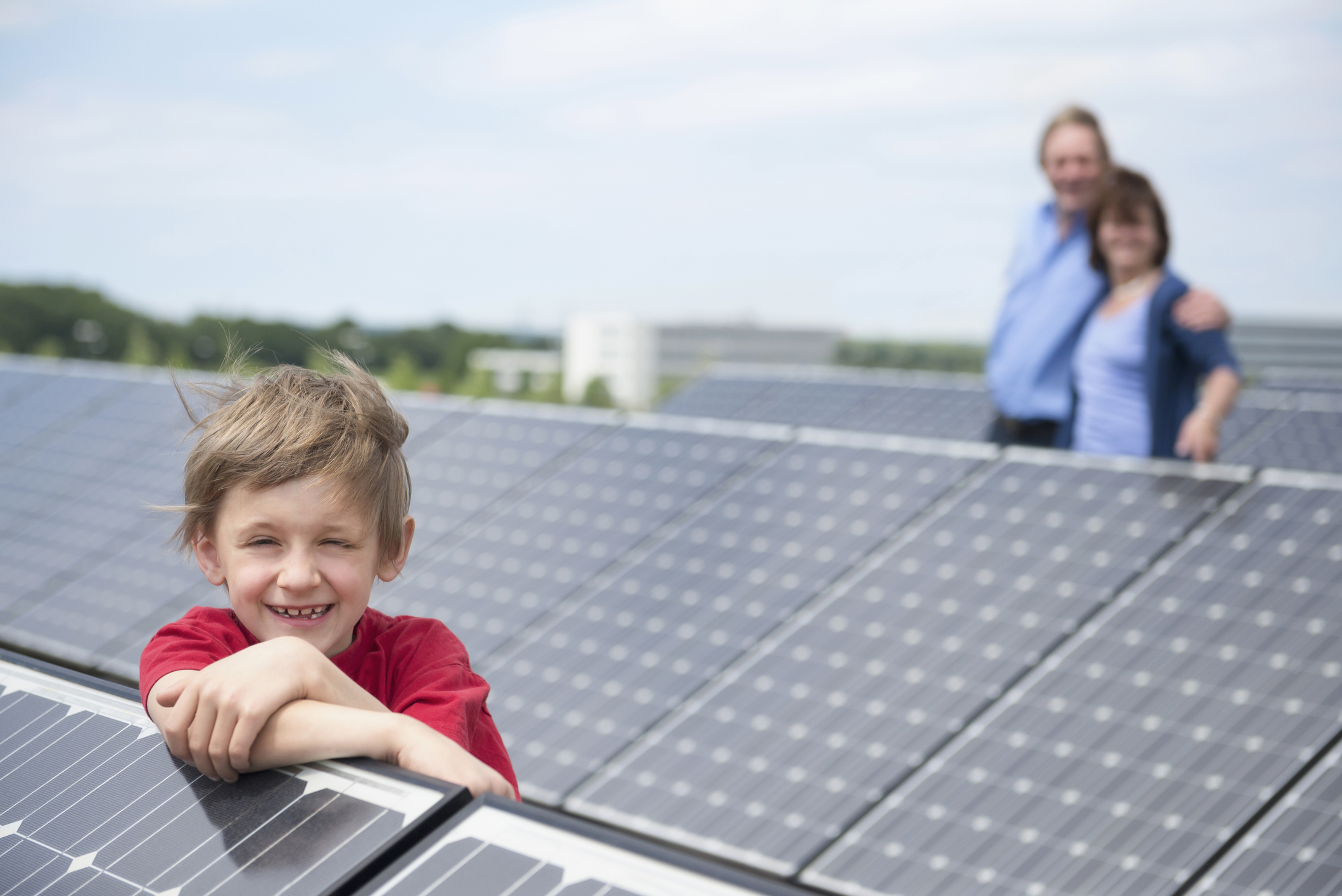
Community solar is a growing way to save money with solar energy, shaving between 5% and 15% off your electric bill without owning or leasing a rooftop system. You can reap savings even if you have a shaded roof or are a renter.
How community solar works
Private energy companies build large “farms” of solar panels that provide renewable energy to the electricity grid. These farms take advantage of the plummeting cost of solar power and economies of scale, usually generating electricity more cheaply than an electric utility. You can then purchase shares of one of these community solar projects, and the savings are passed on to you through your local utility.
Also sometimes called “shared solar” or “solar gardens,” community solar projects add capacity to your local electric utility, but are privately owned. Aside from the cost savings, community solar is an efficient way to help your region reduce fossil fuel emissions and improve air quality.
How to sign up to save money with solar energy
Not all states or utilities allow community solar. To find out if there are projects open to subscribers near you, go to https://communitysolar.energysage.com and enter your zip code. You’ll see available projects, estimated cost savings and cancellation terms. Some projects even offer sign-up bonuses. Your savings may be lower in the winter and higher in the summer.
If there are no projects available for customers in your zip code, you can sign up to be notified when a project launches near you.
Before signing a project contract, make sure you understand the terms. Compare the subscription fee (if any), estimated savings, cancellation terms, project location and payment model. If you think you may be moving soon, be sure to ask about the portability of your contract. And some projects won't save you money, so be sure to compare your last electricity bill with the rates offered by the project.
Finally, do a little research to ensure the company you sign on to is reputable. Check the company's rating on the Better Business Bureau website. You can also see if the company has committed to higher levels of transparency, ethics and sustainability by checking if it has a B-Corp report.
Where is community solar available?
There are community solar projects in 41 states and the District of Columbia, according to the Solar Energy Industries Association (SEIA). States adding the most capacity in this way are New York, Massachusetts and Minnesota; in general, the 20 states that have the most capacity are those that have passed regulations supporting community solar.

According to a 2022 report by Wood Mckenzie and SEIA, economies of scale and grants from the Inflation Reduction Act will double the community solar market by 2027.
Pros and cons of community solar
Community solar is not for everyone. If you own a home with abundant sun throughout the day, installing a rooftop solar panel system may save you far more on electricity bills than community solar ever could. Here are a few more considerations.
Pros:
- Projects are available to renters, people in shared buildings and institutions like houses of worship.
- There are no solar panels or systems on your own roof. Instead, you are renting part of a solar farm nearby.
- You may save between 5% and 15% on your monthly electricity bill, with some seasonal variations. Just be sure to read the terms carefully.
- Community solar creates local jobs and environmental benefits near your home.
- Many community solar farms are built on unused land, such as former landfills or parking lot roofs.
- Low-income households are often able to qualify for higher levels of savings, depending on the state and the project.
Cons:
- By buying a subscription to a community solar project, you miss out on considerable cost savings from federal and state incentives for rooftop solar power. Though you will likely still save money, it will be far less than if you own a solar system.
- Not all solar farm project developers focus on environmental benefit. In some cases, they may clear forest or farmland for projects. You should be able to review these details in the project description.
- Community solar isn't an option everywhere in the U.S.







